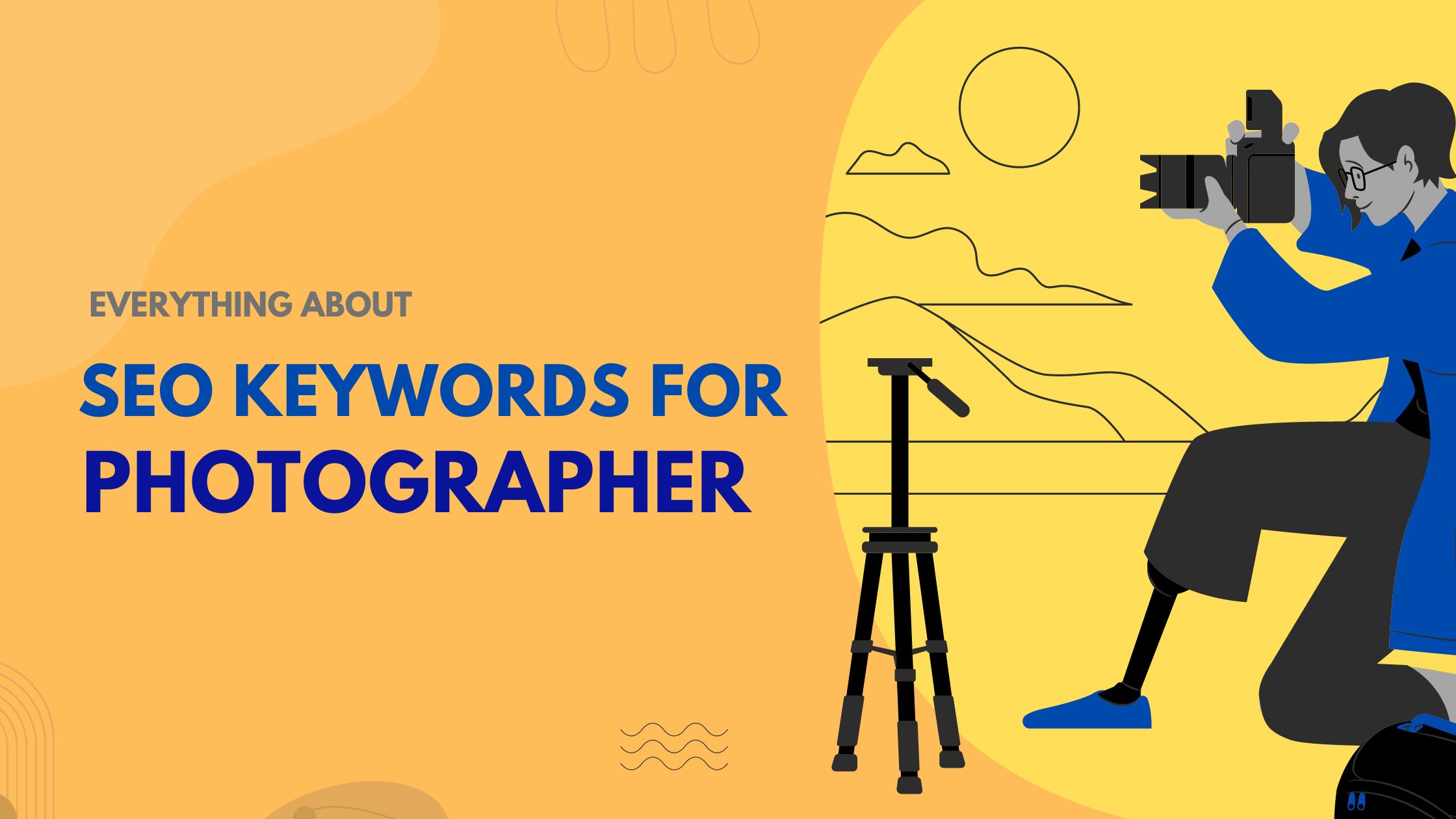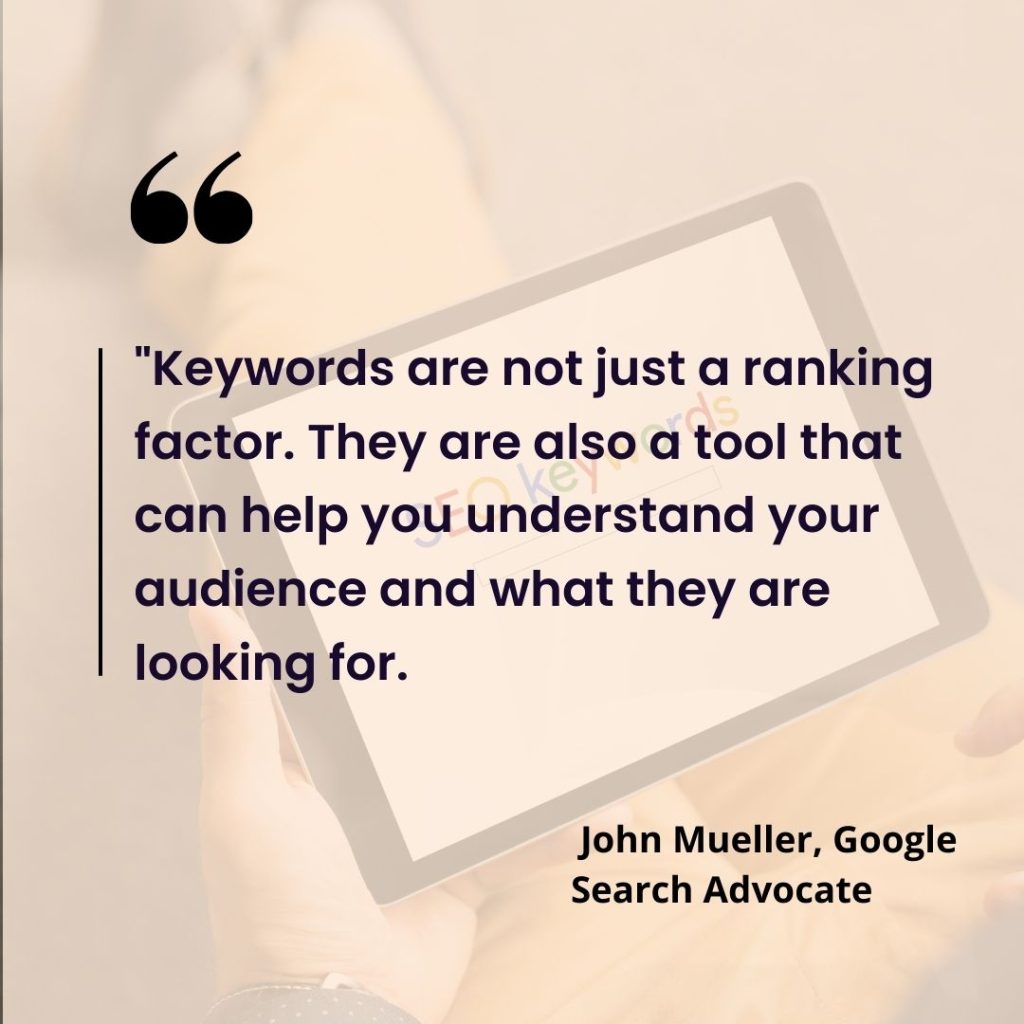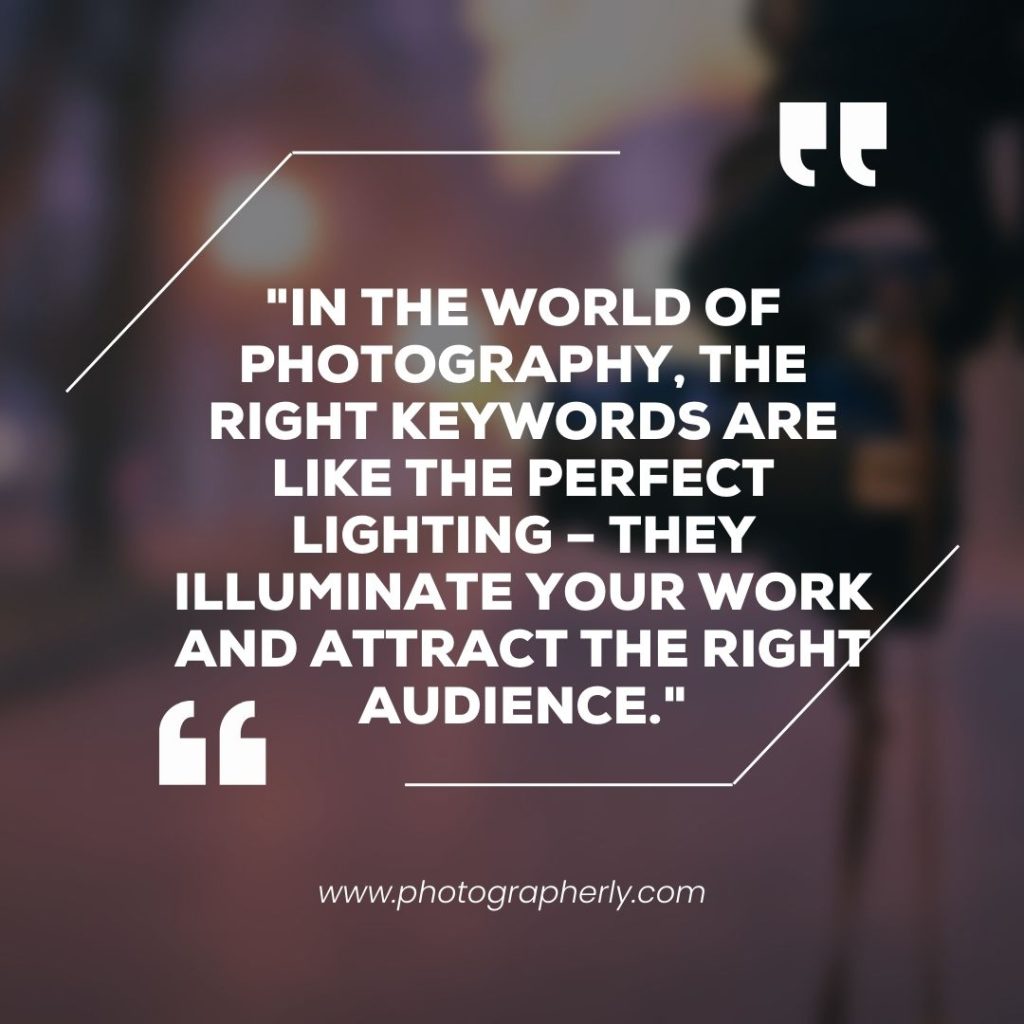A Guide to SEO Keywords for Photographers


This comprehensive guide aims to help photographers navigate the world of SEO and keywords.
Whether you are a wedding photographer or specialize in portrait photography, understanding keywords for photographers is crucial to attracting more traffic to your website and getting more eyes on your work.
For instance, Keywords for Photographers are utilized to enhance online visibility and increase web traffic. A portrait photographer, just like any other professional, needs to leverage relevant phrases to rank high in search engine results.
As a former photographer who has turned into an SEO Consultant for photography businesses and agencies for over 5 years, I've witnessed firsthand the transformative power of effective keyword optimization. In the competitive realm of photography, where captivating visuals vie for attention, strategic keyword placement can make all the difference in attracting potential clients.
Having guided numerous photography professionals to the top of search engine results pages (SERPs), I've gathered invaluable insights into the art of crafting keyword strategies that resonate with both search engines and discerning clientele.
In this blog post, I'll delve into the intricacies of SEO keyword selection for photographers, equipping you with the knowledge and tools to elevate your online presence and attract a steady stream of eager clients.
Photography Keywords words or phrases directly related to your expertise or photography type. They are significant because they can help you drive potential clients to your online portfolio, blogs, websites, or social media pages.
Potential keywords could range from the type of photography you specialize in, such as "wedding photography" or "landscape photography," to the locations you serve and even to the style of your work, like "cinematic" or "photojournalism."

It may also include descriptions of your work, for instance, "editorial portrait photography," "event photography," and so on.
But a photographer who wants to serve in their locality (e.g., in just a/ several specific towns or cities) should choose a keyword that contains the location.
To target a specific locality, a photographer should choose a phrase that includes the location. This allows search engines to understand the photographer's intent and prioritize their website or content for searches made within that area. For example, if a photographer wants to serve in New York City, they could choose keywords like "New York City photographer," "photographer in NYC," or "professional photographer in New York."
These location-specific keywords increase the likelihood of their website appearing in search results for people looking for photographers in that area.

Best keyword formats for photographers include:
Location-based keywords:
Service-based keywords:
Specific keywords:
Long-tail keywords:

SEO keywords are essential to any photography business online. They link what people are searching for and the content you provide to fill that need. Although your photography tips and blogs may be top-notch, your content may only reach its intended audience with the right phrases driving search results to your website.
Benefits of Using SEO Keywords for Photography Websites:
In today's digital age, most people start their search for a photographer online. This means that it's crucial for photographers to make sure that their website is optimized for the keywords that potential clients are using.
1. Increased Website Traffic: When relevant keywords are used appropriately, search engines are more likely to rank the website higher in search results, leading to increased organic traffic from potential clients seeking photography services.
2. Targeted Audience Reach: Using specific keywords related to photography specialties, such as wedding photography, portrait photography, or landscape photography, allows photographers to target their marketing efforts toward their desired clientele.
3. Enhanced Brand Recognition: Consistent use of relevant keywords helps establish the photographer's brand as an authority in their niche, building credibility and trust among potential clients.
4. Improved Conversion Rates: By aligning website content with the search terms used by potential clients, photographers can increase the likelihood of converting website visitors into paying customers.
Keyword metrics in SEO involve aspects like search volume and search intent. Analyzing monthly search volume can help you understand the demand for specific photography keywords. Additionally, understanding search intent allows you to create content that meets users' needs, improving chances of higher search engine results ranking.
The search volume means the number of searches for a particular word or phrase within a specific time frame. Higher search volumes indicate popular keywords.
Search volume in keyword research is crucial as it presents a certain query's general 'popularity.' This metric allows you to gauge the number of searches users perform for a given term within a specified period (usually one month). Regarding a photographer or a photography business, utilizing popular queries can significantly increase their visibility in search engine results.
A photographer can use various SEO tools to determine the search volume of keywords. Tools such as Google Keyword Planner, MOZ, or SEMrush provide detailed statistics, including the monthly search volume of any given word or phrase. These tools can also provide a comparative analysis of different types of keywords based on search volume and competition.
Determining keyword Competition is crucial for photographers. It provides insights into the competition level for hardness for ranking a query and helps strategize optimization methods to rank better.
To measure keyword difficulty, there are several factors to consider. First, you should analyze the competition level for ranking the query you want to target. This can be done by searching for the keyword and analyzing the top-ranking pages. High competition indicates a challenging keyword to rank for, while low competition suggests an easier opportunity.
To measure it, you can use this free keyword research tool.
Local keywords incorporate specific locations, such as city names or neighborhoods, to refine search results. For example, keywords like "wedding photography NY" or "wedding photography Ontario" target potential clients in those areas.
Pro tips: Do not fall into the trap of search volume. I have seen that in most cases low search volume keywords can bring good business if it is a local or geo-targeted keyword.
Search intent, also known as user intent, is the underlying reason why a user types a query into a search engine. It's the goal or objective the user hopes to achieve by conducting their search. Understanding search intent is crucial for search engine optimization (SEO) as it helps webmasters create content that aligns with the needs and expectations of searchers.
Users are seeking information about photography services, styles, or techniques. They want to learn, understand, or research something related to photography.
Users are trying to find a specific photographer's portfolio or website. They know the name of the photographer or have a particular photography style in mind.
Users are ready to book a photographer or inquire about photography services. They are actively seeking to engage a photographer for their needs.
Users are in the early stages of the decision-making process and are researching photography services. They are comparing options and gathering information before making a decision.
It begins by brainstorming keywords by thinking about what types of photography you offer ("portrait photography," "wedding photography," etc.) and listing down the related terms your prospective customers could use. Moreover, using free keyword research tools to understand the most popular and related keywords can provide insights into your target audience's search intent and monthly search volume.
When choosing keywords for your photography website, consider the language your target audience might use while searching for your services. The term should relate to your business and your photographic services.

Finding and choosing the best keywords balances search volume and relevancy to your services. For example, a wedding photographer might find that the "wedding photographer" has a high search volume, but it's highly competitive. In this case, using long-tail phrases, like "wedding photographer in [your city]," might prove more effective.
Start by brainstorming potential words related to your type of photography. List out the common phrases that people might search for online.
Then use free keyword research tools to find related queries and assess their effectiveness. Focusing on long tail keywords – those with three or more words (for example, "wedding photographer in New York") can make ranking higher in search results more accessible.
SEO is not a one-and-done deal; it's a continuous process. As you gain more insights about your target audience and current trends, consistently refine your list of keywords.
Remember, keyword optimization plays a vital role in maintaining and increasing traffic to your website.
These words should be incorporated into your online content, blogs, image alt text, metadata, and captions. You can boost your visibility among your potential clients and increase your business through the correct and strategic use of these photography terms.
The major types of keywords to consider are head, short tail, and long tail keywords.
Here are some examples of how to use these keyword formats in a sentence:
The first step to setting up keywords on your website is to conduct thorough keyword research. You should put yourself in your client's shoes and think about the words or phrases they will use when searching for your services. Several tools, such as Google Keyword Planner, SEMrush, and MOZ, can help you in this process.
Long-tail phrases are more specific and, thus, more effective in improving your website's SEO. For instance, rather than using "wedding photography," you could use "wedding photography services in New York."
Your website should also contain your primary key terms. Not only is this beneficial for SEO, but it also increases the website's user-friendliness.
Use them in your title tags as they have a significant effect. Also, optimize your meta descriptions (the summary of your web page content) by including relevant words and phrases as they appear in the search results.
You will be using a lot of images. It's crucial to optimize these images by using keywords in the file names and the images' alt text.
Consistently create and share high-quality content relevant to your services, including your keywords. The more you use your keywords (thoughtfully and not spammy), the better you rank for them.
Using your primary and secondary keywords in your web pages' headers (H1, H2, H3) can significantly improve your SEO.
Regularly monitor your website's progress using an analytics tool. This will help you understand which terms are performing well and which need improvement.
As a photographer, you know the importance of capturing stunning images that tell a story. But what good are those images if no one can find them? That's where SEO comes in. By understanding and implementing the right SEO strategies, you can attract more visitors to your website and showcase your work to a wider audience.
In this blog post, we've discussed the importance of SEO for photographers and how to set up SEO keywords on your photography website. We've also provided some tips for optimizing your website for search intent, which is crucial for attracting relevant clients.
If you're looking for help with your photography SEO, we can help! We offer a variety of SEO services for photographers, including:
We can also help you develop a custom SEO strategy that is tailored to your specific needs and goals.
Contact us today to learn more about our SEO services for photographers.
Unleash the power of SEO to elevate your photography business.
Are you ready to take your photography business to the next level? Contact us today for a free SEO consultation. We can help you develop a custom SEO strategy that will attract more visitors to your website, showcase your work to a wider audience, and book more clients.
A: SEO, or search engine optimization, involves using relevant keywords and phrases to drive traffic to your site. In photography, SEO can refer to using relevant keywords in your website content, image descriptions, and blog posts. For example, if you are a wedding photographer, you might use terms like "wedding photography" or "wedding photographer in [your city]."
Creating a list of SEO keywords for your website can benefit your SEO ranking. This can include terms related to your specialty, such as "portrait photography," "wedding photography," or specific mentions of editing software you use or styles you specialize in. SEO comes in when you add these keywords to your website's content naturally and meaningfully.
Keywords are important to online content as they guide search engines like Google and Bing in understanding what your content is about. Adding the right keywords to your content can improve your site's visibility in search engine results, thereby increasing traffic to your site.
A: While it's important to use keywords in your content, the use should be natural and not forced. Overloading your content with keywords may lead to a poor reading experience and could lead search engines to view your content as spammy. Ideally, focus on seamlessly incorporating only the most relevant terms into your content.
Research what your prospective clients are looking for to make your photography content keyword-friendly. Infuse the chosen keywords into your site content, including image descriptions, blog content, meta descriptions, and titles.
Disclaimer: Please note that these tips are just a starting point. The best way to get results is to consult with an experienced SEO professional. We hope this blog post has been helpful. If you have any questions, please feel free to leave a comment below.